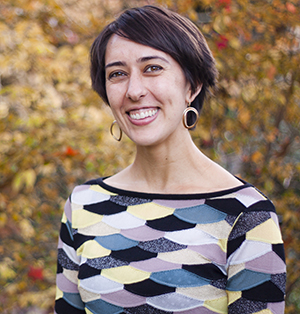Alisha Holland, 29, Political Science
“Only the impossible projects are worth undertaking.” That’s what Alisha Holland keeps reminding herself as she toils on her Harvard dissertation about whether and how South American politicians enforce laws that target the poor. The credo was planted into her brain by her mentor, Deborah Yashar, who directs the Latin American Studies program at Princeton.
When Holland was an undergraduate there, Yashar encouraged her to study Latin American politics. In 2007, when Holland won the Pyne Prize, Princeton’s highest honor for an undergraduate, Princeton’s president at the time, Shirley Tilghman, said, “Alisha has demonstrated just how much a keen mind, a disciplined passion, and a well-informed concern for others can accomplish.”
(Photo: Alisha Holland)

Besides the Pyne—which goes “to the senior who has most clearly manifested excellent scholarship, strength of character, and effective leadership”—Holland’s CV is littered with prizes, among them National Science Foundation fellowships, several thesis honors, and more than one award for being an excellent teacher. More recently, she was elected to the exclusive Harvard Society of Fellows.
Originally from Amherst, Massachusetts, Holland’s mother, Dona Kercher, is a Spanish professor at Assumption College; her father, Norman Holland, teaches Latino literature at Hampshire College. When she was a child, her parents took her with them to visit relatives in Panama.
“I found that my mind would spin with questions when I went to other countries,” she says. “Why do Mexicans try to bribe the police in Ciudad Juárez but follow the law when miles north in the United States? Why are Europeans more likely to believe the poor are victims of injustice and support welfare expenditures, while Americans tend to see the poor as lazy?”
When she got to college, she took a political science class and realized that there’s an entire discipline dedicated to studying these types of questions: comparative politics.
In addition to her studies, Holland headed Princeton’s Latin American Studies student organization, helped start a student group against protectionism in the food trade, led the figure-skating club and a flamenco dance group, and tutored the university’s Spanish-speaking workers in English. She wrote her senior thesis on the politics of gang violence in Central America, and traveled to El Salvador and Guatemala to do the fieldwork for it.
She also fell in love: She met Glen Weyl in a Latin American politics class in 2003. He was valedictorian of their 2007 graduating class (she, too, was summa cum laude), and they married in 2010.
After college, Holland worked for Human Rights Watch in Chile, Venezuela, and Colombia. “I spend long periods of time in Latin America,” she says, “and I’m overwhelmed by the generosity of the people who I interview and who help me understand politics in diverse settings. I’m motivated by the challenge to synthesize and communicate my insights to others.”
That’s what her work at Harvard centers around: “You have to understand how politics work and why certain political arrangements promote specific types of behaviors before you can turn to policy issues like how to promote economic development.”
Her dissertation examines why governments in developing countries choose not to enforce certain laws, like those against squatting and street vending. Politicians who represent impoverished districts, she has found, are more likely to overlook laws that hurt the poor. “My research,” she says, “examines how institutional weakness is a deliberate choice.”
“It is much easier for social scientists to study action as opposed to inaction,” she points out. “I hope to push political scientists to think more carefully about deliberate choices not to act.”
Soon Holland will be able to influence whole crops of young political scientists— she just accepted an offer from Princeton to become an assistant professor of politics at her alma mater in 2016. “I see myself teaching about Latin American politics and urban politics in developing countries,” she says. “I also hope to have a foot in the development policy world. In particular, I could see taking a more active role in debates on housing policy.”
Whether that’s academically popular doesn’t concern her too much: “The social world should be what motivates political science projects, not academic debates, and people with rich life experiences are best equipped to identify questions worth studying.” She advises aspiring political scientists to first travel, work, and decide which specific questions interest them before starting graduate school.
For her part, she says, “I always have wanted to understand why similarly situated individuals behave differently depending on the institutional context in which they live.”
An impossible quest? Maybe. But that’s what makes it worthwhile.
See our complete 2014 list of the 30 top thinkers under 30 here.



